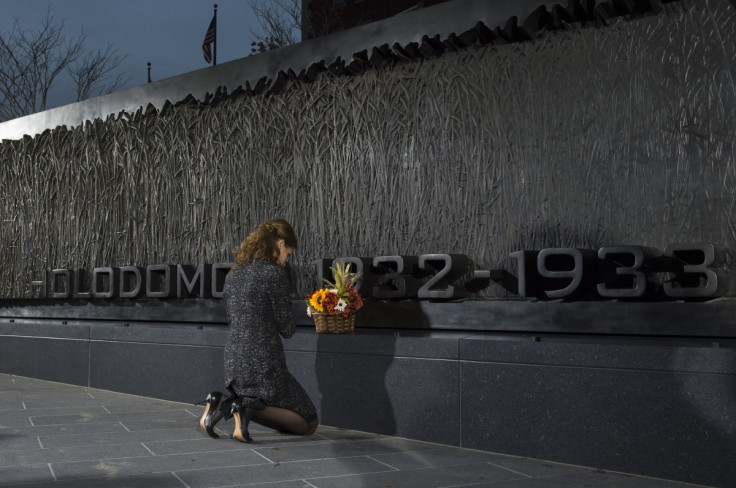Holodomor: What is the man-made famine that killed millions?

On the fourth Saturday of November, millions of Ukrainians will commemorate Holodomor Remembrance Day, in memory of the millions of people who were sentenced to "death by hunger". The man-made famine which swept through primarily ethnically Ukrainian areas in the Northern Caucasus in 1932 and 1933, claimed the lives of 3.3 million people, although many estimate the actual number of dead to be much higher.
The catastrophe - often labelled as a genocide - took place under the brutal Soviet regime of Joseph Stalin, who was determined to crush the rebellious Ukrainian peasants and force them into collective farms. The policy meant farmers conceding their land and livestock to the state, and Stalin would then sell the excess grain abroad in a bid to catalyse Soviet Russia's industrialisation and make it a military superpower.
Hell-bent on teaching farmers "a lesson they would not forget" for resisting collectivisation, millions died in areas that were heavily populated by Ukrainians "while the Soviet Union simultaneously denied the famine and exported a quantity of grain great enough to feed the entire Ukrainian population," notes Rutgers University.
Bolshevik forces marauded through villages taking food and carrying out mass executions. Those who were caught stealing food or trying to leave the region in search of bread were imprisoned, turned back or executed.
At the height of the Holodomor, 17 people died each minute, 1,041 people died each hour and 25,000 people died each day. "It was the Soviet regime's deliberate seizure of Ukrainian crops and refusal to provide food relief that turned Europe's breadbasket into a land of immeasurable human suffering," a US statement read.
The trauma which swept through the nation was unimaginable. Entire villages starved to death as cities and roads lay strewn with the corpses of people searching for food in some of the world's most fertile land. People were forced to use dried nettle leaves and other weeds to make bread as they desperately tried to evade death. Villagers used wax in place of cooking oil, women were forced to offer sex in return for food and there are even reports of cannibalism.
"The peasants ate dogs, horses, rotten potatoes, the bark of trees, anything they could find," witness Fedor Bleov wrote. A young communist named as as Lev Kopolev observed "women and children with distended bellies turning blue, with vacant lifeless eyes. And corpses. Corpses in ragged sheepskin coats and cheap felt boots; corpses in peasant huts in the melting snow of Vologda [in Russia] and Kharkov [in Ukraine]." Citizens were banned from travelling abroad to obtain food, effectively decreeing a death sentence on the population.
Ukraine has sought international recognition of Holodomor as an act of genocide, and says that Russia should accept responsibility for the famine as the legal successor of the Soviet Union. Russia says that it cannot be classified as a genocide as millions of people from various ethnic backgrounds across the Soviet Union suffered. Only a handful of nations, including Canada and the US, but not the UK recognize the Holodomor as an act of genocide against the Ukrainian people.
© Copyright IBTimes 2025. All rights reserved.






















